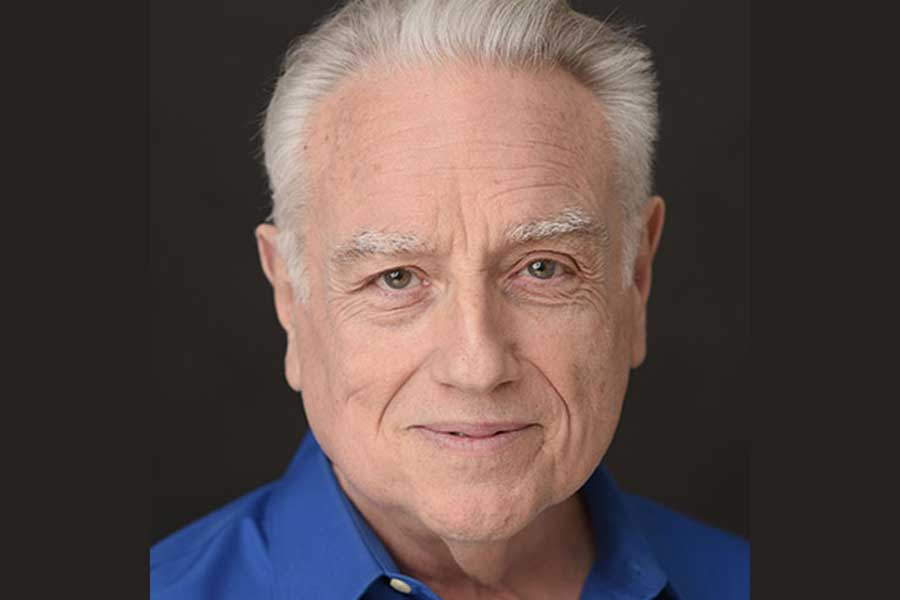Ed Dixon, the openly gay, award-winning Broadway playwright and composer, is spending the month in Bristol.
Dixon, 70, stars in Bristol Riverside Theatre’s bound-for-Broadway production of “The Rivals,” a musical farce adapted by Stephen Kellogg from the 1775 play by Richard Brinsley Sheridan.
“The Rivals” is the latest in Dixon’s ever-growing resume. In the summer, he starred in “Grumpy Old Men,” a production out of Ogunquit, Maine.
Last year, he won the Drama Desk Award for his off-Broadway production “Georgie: My Adventures with George Rose,” a look at his relationship with the late character actor, which he wrote and starred in.
“I don’t think people know that a person my age can have such a creative, exciting life,” said Dixon. “I don’t think that’s normal.”
But for Dixon, work is the norm. His theater credits disclose a near-constant stream of roles, beginning with his 1971 performance in the Broadway revival of “No, No Nanette.”
His only gap, from 1988-91, unfolded amid the struggle that defined his life’s second act: a heavy drug addiction.
Dixon, who arrived in New York City in the late 1960s, prefaces the story of his addiction with the culture of the time.
“We were socialized — in my case, in New York — in bars. So there was booze involved in meeting people and talking to people and learning what it was to be gay,” he said.
Dixon said the prevalence of drugs in the clubs and discos of the 1980s heightened the threat of substance abuse.
“And, here’s a little surprise: In the theater, drugs were everywhere,” he added.
By 1988, the year Dixon became addicted, the normalization of drugs and alcohol had numbed him to the threat.
“Somebody brought a really serious drug to my house one day … and a switch got flipped, and it would not go back.” Dixon won’t reveal which drug segued him into addiction, but he is candid about the details of his downward spiral.
The same year he became addicted, he took several blows in his personal life. He lost a friend to AIDS, another to suicide, and Rose, his mentor and very close friend, was murdered.
“I’m not saying that my drug addiction was a result of those three events, but I can certainly say they did not help my mental stability,” he said.
At his lowest, Dixon found himself homeless and close to death.
“I had begun adapting a bunch of early Willa Cather short stories into a musical before my life tipped over — and I took those pages and I put them in a plastic bag and gave them to a friend when I thought I was going to die,” said the actor.
With help from his management team, Dixon was able to seek treatment through a 28-day detox program and then a halfway house, followed by AA meetings and therapy. He credits the “grace of my friends” for getting him clean.
Dixon said a woman he considers like a sister housed him rent-free for a year after he finished rehab to ensure he wouldn’t relapse.
“When she and her husband took me into their loft, I was in early recovery. Nobody knew whether I was going to survive or not. And they had a 2-year-old.”
Dixon said within that year, he could see his life coming back together. “So I did what I was trained to do. I went out and got a Broadway show.”
What Dixon calls his first gesture of coming back into the world was an adaption of the Willa Cather short stories he’d entrusted to his friend several years before.
“When I got well, she brought me that plastic bag. I was expecting it to be incoherent, but when I started looking at what I had written, it was very coherent and very useful,” he said.
Dixon wrote the musical “Cather County” as a celebration “of coming back into life.” It went on to win the Leon Rabin Award at Lyric Stage in Dallas.
Dixon has not stopped working since. He has continued to star in shows and has written plays performed at Signature Theatre in D.C., off-Broadway and around the country. He’s also taught a number of students since getting sober in 1991. In 2012, he turned his life story into a book, “Secrets of a Life On Stage … and Off.”
Dixon hopes audiences will take his experiences as evidence of the ever-existing potential to reclaim one’s life.
“Making a serious error in one’s life does not mean that your life is over. There is a possibility that you can put things back together and have a wonderful life afterward, which is what I have done.”
“The Rivals” runs at Bristol Riverside Theatre, 120 Radcliffe St., through Nov. 18. Tickets are $15-$53. For event information, visit https://www.brtstage.org/main-stage/the-rivals/.

